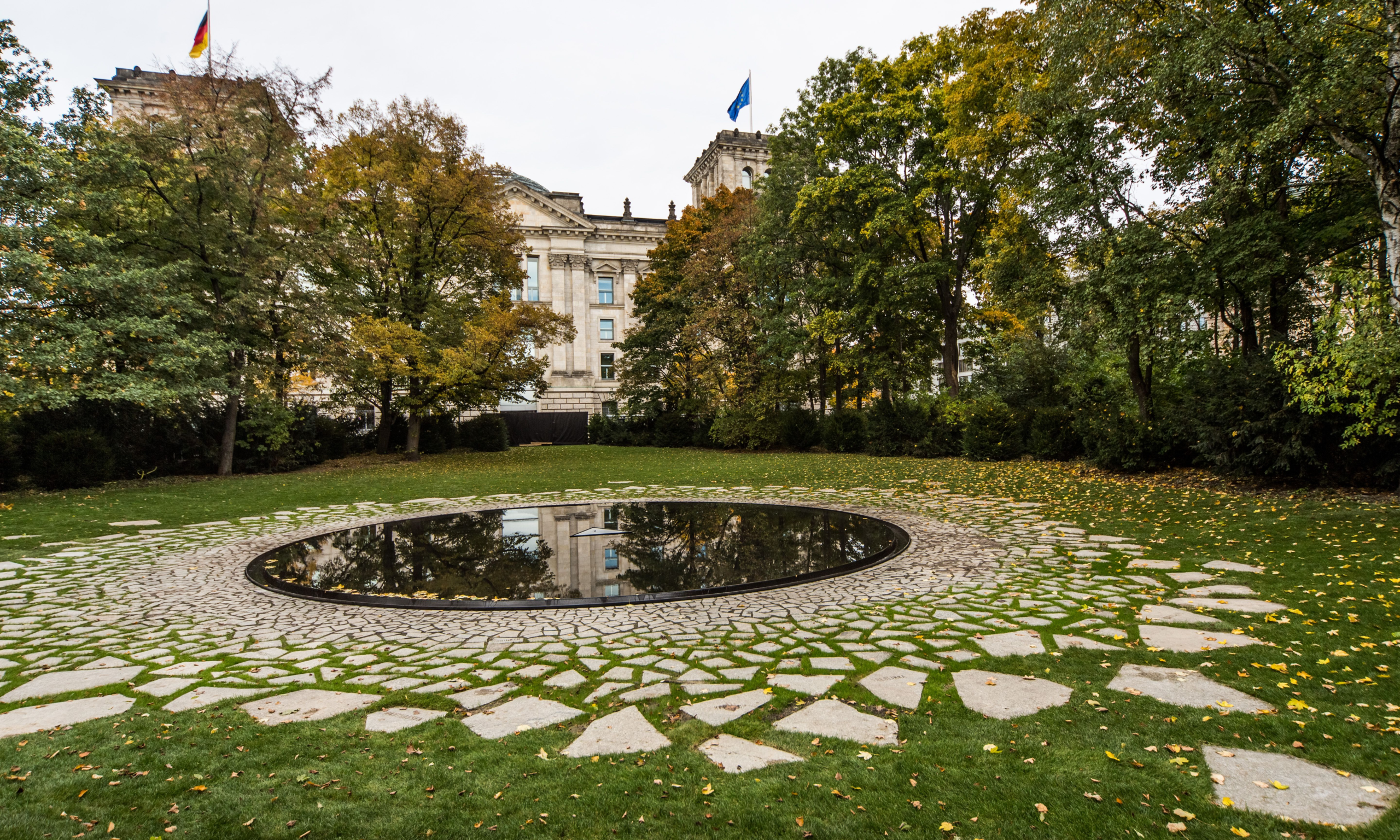The Memorial to the Sinti and Roma Victims of National Socialism Photo: © Marko Priske
The Berlin memorial dedicated to the 500,000 Sinti and Roma of Europe who were murdered by the Nazis is under threat from a planned underground train tunnel that would run directly beneath it.
Inaugurated only 12 years ago and commissioned by the German state following a protracted struggle for proper recognition of the marginalised community, the Memorial to the Sinti and Roma Victims of National Socialism is a symbolic grave and a central place of mourning and remembrance.
The memorial was designed by the late Israeli artist Dani Karavan, who is known for creating site-specific monuments around the world, including the Walter Benjamin memorial in Portbou, Spain. Located in Berlin’s Tiergarten park, the Sinti and Roma memorial is nestled within a natural clearing and encompasses a water basin, a granite path, a sound element, commemorative walls with texts, as well as the trees, flowers, and grass that grow there.
At the heart of the memorial is a flower, which lies in the middle of the basin and is accessible through an underground chamber. It is replaced every day and symbolises “the unmarked graves of the Sinti and Roma who were murdered by the Nazi regime because the wildflowers were their only gravestone,” according to the artist’s statement.
The memorial was built in direct view of the German Reichstag, and a short walking distance from the Memorial to the Murdered Jews of Europe by Peter Eisenman, and the Memorial to Homosexuals Persecuted under Nazism, designed by the artist duo Elmgreen and Dragset.
The Deutsche Bahn, the German national rail company, presented the project four years ago along with alternative routes for the tunnel. But the local government opted for one that would significantly and permanently damage the memorial’s integrity, and includes felling up to 70 centuries-old trees.
A campaign against the plans was launched in 2020, and Karavan, who passed away in 2021, vehemently protested against the construction, insisting that “the trees are an integral part of the memorial and an essential element of the atmosphere I wanted to create.”
After his passing, Karavan’s family together with the Sinti and Roma communities continued to successfully campaign to protect the memorial. But the recent change to a centre-right CDU Berlin Senate in April 2023, saw the Deutsche Bahn’s plans suddenly moved forward. They are now at a stage where objections can be lodged with the railway company until late-July, before construction can begin.
Several Romani organisations in Germany launched a petition in a last-ditch effort to find an alternative route that would leave the memorial untouched. It reads: “The plans reveal evident, devastating, irreversible damage to the memorial. The suggested intervention is an insult to remembrance and to the value of memory.” It adds: “The suggested construction project exposes a politically scandalous failure of the culture of remembrance in Germany.”

